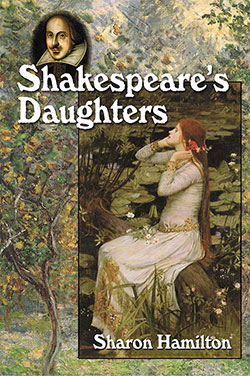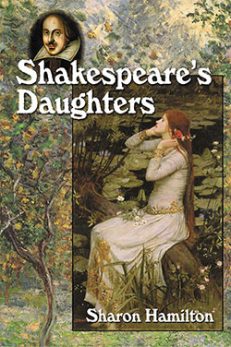Shakespeare’s Daughters
$29.95
In stock
About the Book
The father-daughter relationship was one that Shakespeare explored again and again. His typical pattern featured a middle-aged or older man, usually a widower, with an adolescent daughter who had spent most of her life under her father’s control, protected in his house. The plays usually begin when the daughter is on the verge of womanhood and eager to assert her own identity and make her own decisions, especially in matters of the heart, even if it means going against her father’s wishes. This work considers Capulet in Romeo and Juliet as an inept father to Juliet and Prospero in The Tempest as an able mentor to Miranda; Hermia in A Midsummer Night’s Dream, Jessica in The Merchant of Venice and Desdemona in Othello as daughters who rebel against their fathers; Hero in Much Ado About Nothing, Lavinia in Titus Andronicus and Ophelia in Hamlet as daughters who acquiesce; Bianca in The Taming of the Shrew and Goneril and Regan in King Lear as daughters who cunningly play the good girl role; Portia in The Merchant of Venice, Viola in Twelfth Night and Rosalind in As You Like It as daughters who act in their fathers’ places; and Marina in Pericles, Perdita in The Winter’s Tale and Cordelia in Lear as daughters who forgive and heal.
About the Author(s)
Bibliographic Details
Sharon Hamilton
Format: softcover (6 x 9)
Pages: 191
Bibliographic Info: notes, index
Copyright Date: 2003
pISBN: 978-0-7864-1567-0
eISBN: 978-0-7864-8077-7
Imprint: McFarland
Table of Contents
Preface 1
Introduction 5
1. The Father as Inept or Able Mentor: Romeo and Juliet and The Tempest 13
2. Daughters Who Rebel: Hermia (A Midsummer Night’s Dream), Jessica (The Merchant of Venice), and Desdemona (Othello) 35
3. Daughters Who Acquiesce: Hero (Much Ado About Nothing), Lavinia (Titus Andronicus), and Ophelia (Hamlet) 69
4. Plighted Cunning, Playing the Good Girl Role: The Taming of the Shrew and King Lear 93
5. Daughters Who Act in Their Fathers’ Stead: Portia (The Merchant of Venice), Viola (Twelfth Night), and Rosalind (As You Like It) 125
6. Daughters Who Forgive and Heal: Marina (Pericles), Perdita (The Winter’s Tale), and Cordelia (King Lear) 151
Conclusion 175
Index 181
Book Reviews & Awards
- “A good starting point…recommended for public and academic libraries”—Library Journal
- “An English teacher’s dream: a welcome, highly accessible companion to the study of the comedies, tragedies and romances”—The Exeter Bulletin






